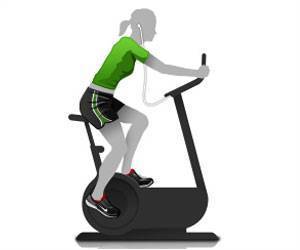A study suggests phones aren't the real distraction—it’s how we use them, even when they're out of reach.

When the Phone's Away, People Use Their Computer to Play Distance to the Smartphone Reduces Device Usage but not Overall Distraction and Task Fragmentation during Work
Go to source). “The study shows that putting the smartphone away may not be sufficient to reduce disruption and procrastination, or increase focus,” said the paper’s author Dr Maxi Heitmayer, a researcher at the London School of Economics. “The problem is not rooted within the device itself, but in the habits and routines that we have developed with our devices.”
‘Putting your phone away won't magically cure your #procrastination. Turns out, distractions just find new forms. Focus is harder than we thought. #Productivity’





Studying Phone Proximity and Productivity
In the study, 22 participants were asked to work for two days in a private, soundproof room to which they brought the devices they usually have on them for work, a laptop and phone at a minimum. They did not change notification settings, and the notifications they received were in no way controlled by the researcher. Two settings that only differed by the distance between participant and their phone were explored: in the first, phones were placed on the desk participants were working from, in the second, the phone was placed on a separate desk 1.5 meters away.Limited smartphone accessibility led to reduced smartphone use, but instead of becoming less distracted, participants shifted their attention to their laptops. Across conditions, participants did not spend different amounts of time on work or leisure activities.
In addition, the results showed that phones were the preferred device for distraction. “It’s your connection with loved ones and with work. It’s your navigation system, alarm clock, music player, and source of information. Unsurprisingly, people turn to the tool that does everything,” Heitmayer pointed out. “Even if you have no clear purpose, you know it has your socials and can provide entertainment.” While computers can fulfill the same functions, using one is less haptically pleasant, and they are not as handy and portable.
“In my research I want to shift the discourse beyond device-centric debates,” Heitmayer said. “The smartphone itself is not the problem. It’s what we do with it and, frankly, the apps that generate and reinforce these habits.”
To optimize time spent without distractions, notifications can be set to arrive at specific times or be silenced altogether. Any way that helps users be more mindful with their time is a step in the right direction, Heitmayer said. Despite these strategies, he cautioned that, realistically, we’re not stopping to pick up our phones anytime soon. “Whenever there is a small break, people check their phone, regardless of whatever system they have in place. And then there’s the socials, which is an entirely different beast.”
Advertisement
Heitmayer also said that in the future we should focus on protecting users, particularly young ones. “These devices are incredibly useful and can facilitate learning and creativity, but they come at a cost that most adults struggle to manage, so we simply cannot ignore this.”
- When the phone's away, people use their computer to play: distance to the smartphone reduces device usage but not overall distraction and task fragmentation during work - (https://www.frontiersin.org/journals/computer-science/articles/10.3389/fcomp.2025.1422244/full)
Source-Eurekalert









